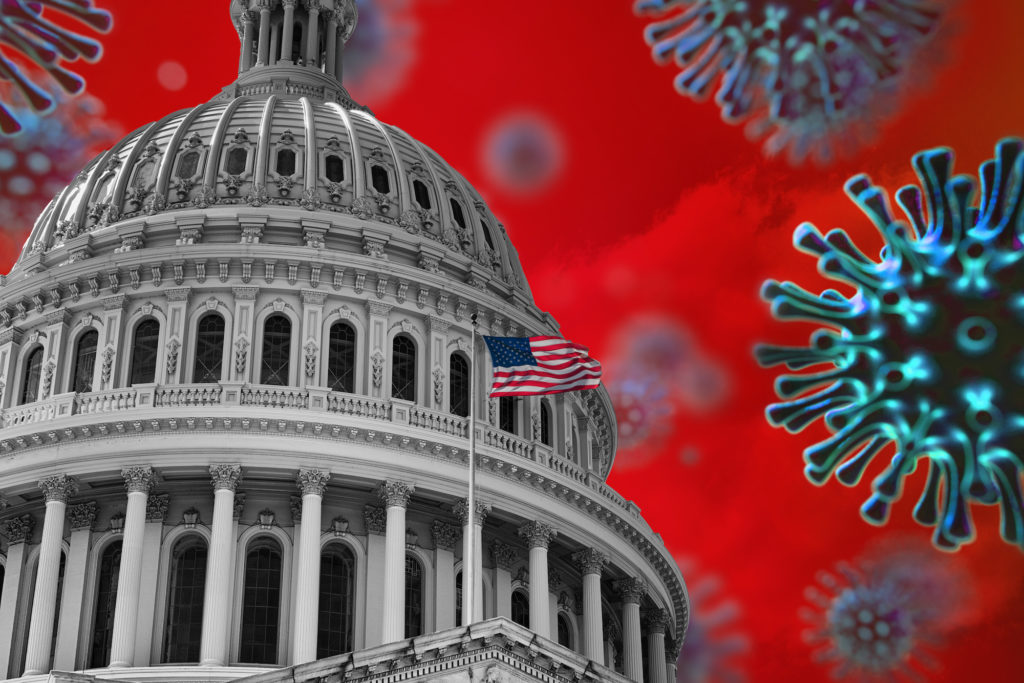
For decades, scientists have predicted that a deadly pandemic would sweep the globe — but what they didn’t expect was that basic public health measures such as mask wearing and social distancing would become political flashpoints, especially in the United States.
But according to new research from the University of British Columbia (UBC) Sauder School of Business, a different approach to public health messaging could help ease those tensions – and potentially save lives.
In the U.S., more than eight million people have been infected with the fast-moving virus, and more than 225,000 have died. Still, millions of Americans, many of them conservatives, doggedly refuse to wear masks, social distance or obey limits on social gatherings.
In fact, for some, snubbing those prevention measures has in itself become a political statement.
Through a series of studies involving more than 2,300 U.S. participants, both Republicans and Democrats, researchers from UBC Sauder, Boston University and Stockholm Business School set out to determine why that was, and how respondents from both sides of the political fence felt about personal responsibility.
What they found was that conservatives tend to focus on self-reliance and feel responsible for their own outcomes, whereas liberals take more of a community-minded view and are more likely to take responsibility for others.
Democrats tend to feel their community-minded actions make a difference, whereas many Republicans believe they aren’t particularly helpful.
“Republicans have this perception that if they do the social distancing, the mask wearing, the hand sanitizing and all these different things, they have less of an impact on others — whereas the Democrats feel like these behaviours will have an impact on others,” explains UBC Sauder Professor Katherine White, who is also the academic director of the Dhillon Centre for Business Ethics.
“So Republicans basically say, ‘It’s my choice and I’m going to do what I want. It’s not really affecting anyone else.'”
In one study, the researchers asked participants to adopt and use a contact-tracing app, which helps track positive cases of COVID-19 and alert users when they’ve been near an infected person. The participants were given different messages about the benefits of the app, some focused on protecting the self (“Keep Yourself Safe”) and some aimed at helping others (“Help Save Lives”).
“We find that the self-focused messages resonate significantly better with Republicans and make them more likely to use the app,” says White, who adds that focusing on individual protections doesn’t alienate Democrats or cause a backfire effect.
The study authors didn’t only divide people into those two political camps; they also surveyed participants to determine their level of liberalism or conservatism, and noticed the study’s findings were amplified when participants were more deeply rooted in their respective political camps.
But the findings don’t necessarily mean that conservatives are less compassionate, emphasizes White. “Some people say, ‘Conservatives just don’t care about other people.’ And I don’t think that’s what we’re finding,” she says. “What we’re finding is that they don’t see their behaviours as impacting others, which is very interesting.”
Because of the Republican-Democrat divide when it comes to COVID-19 measures, White recommends that public health officials carefully consider where they’re placing their messages, then tailor them to the specific audience.
“You could have one that says ‘do it for others’ in the more liberal media, and then have more of the ‘think about yourself and your close family’ for Republican audiences,” says White. “Don’t necessarily assume it’s one size fits all.”


Leave a Reply